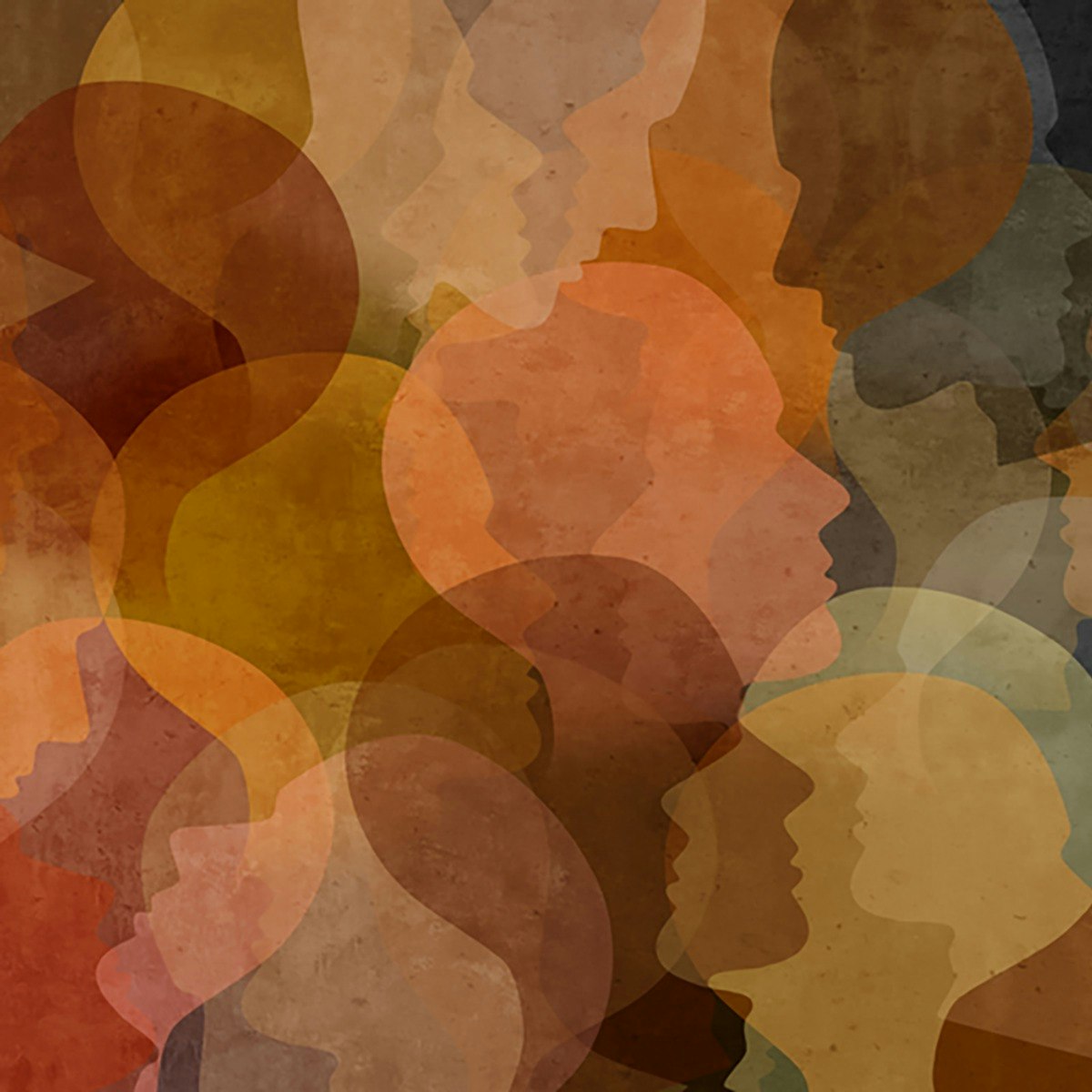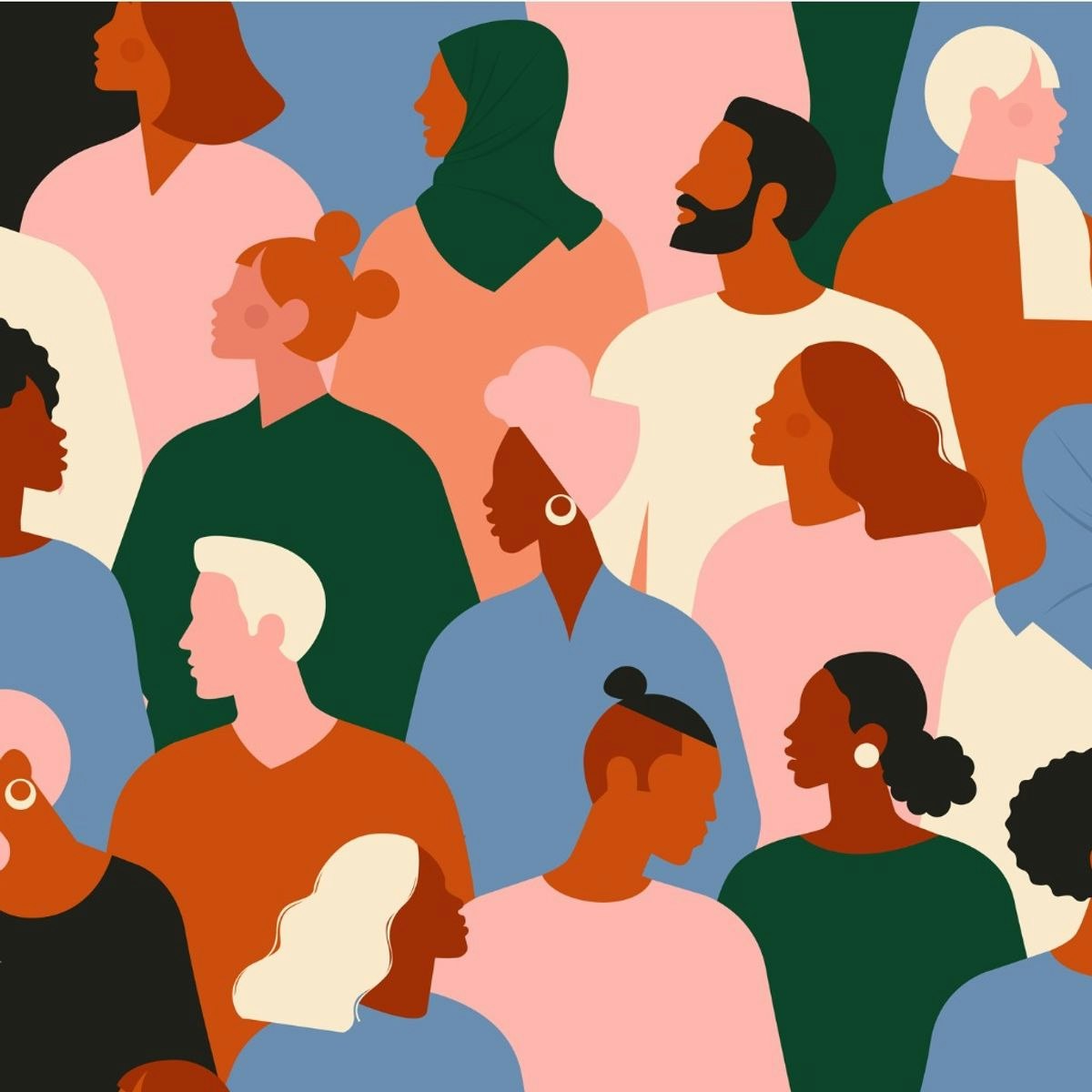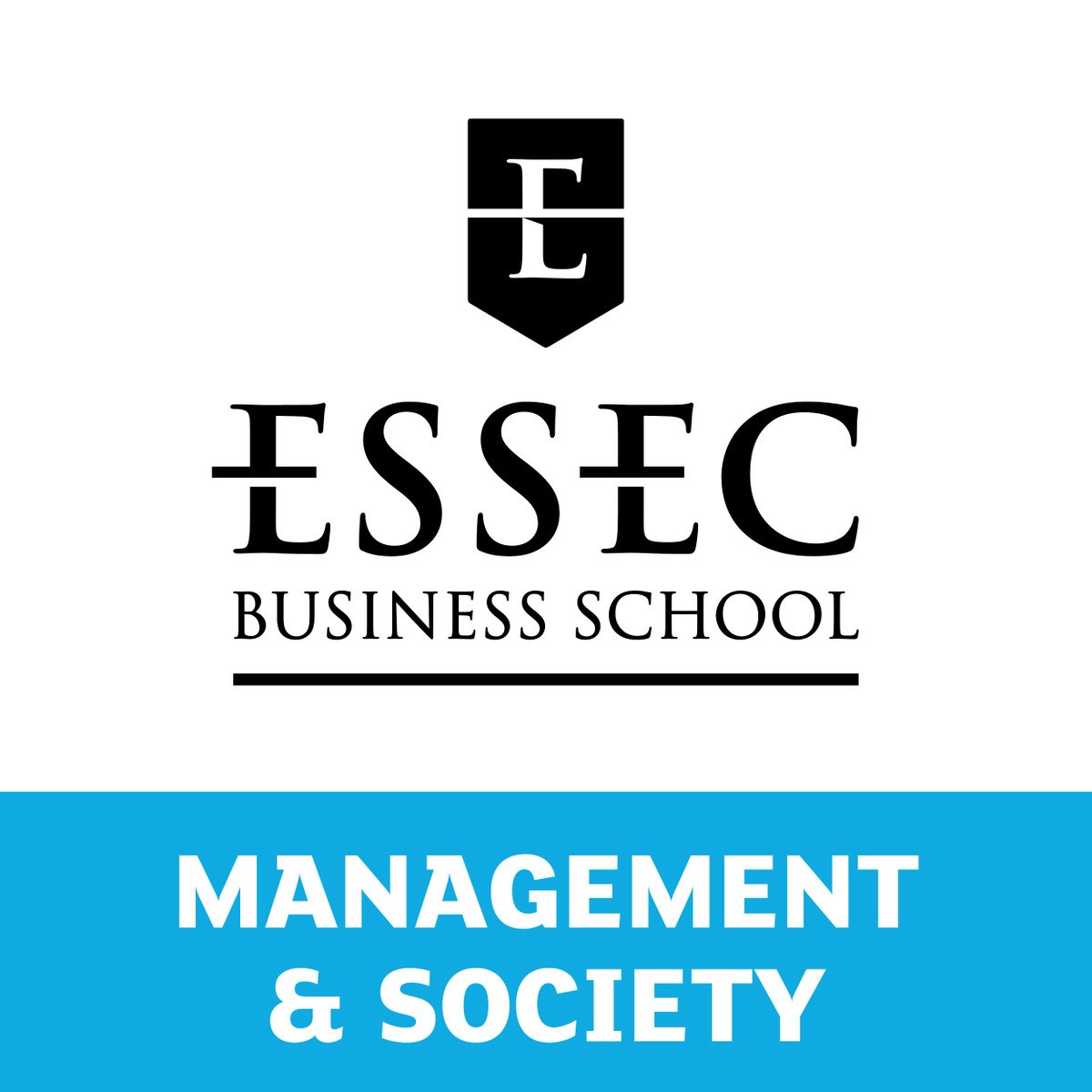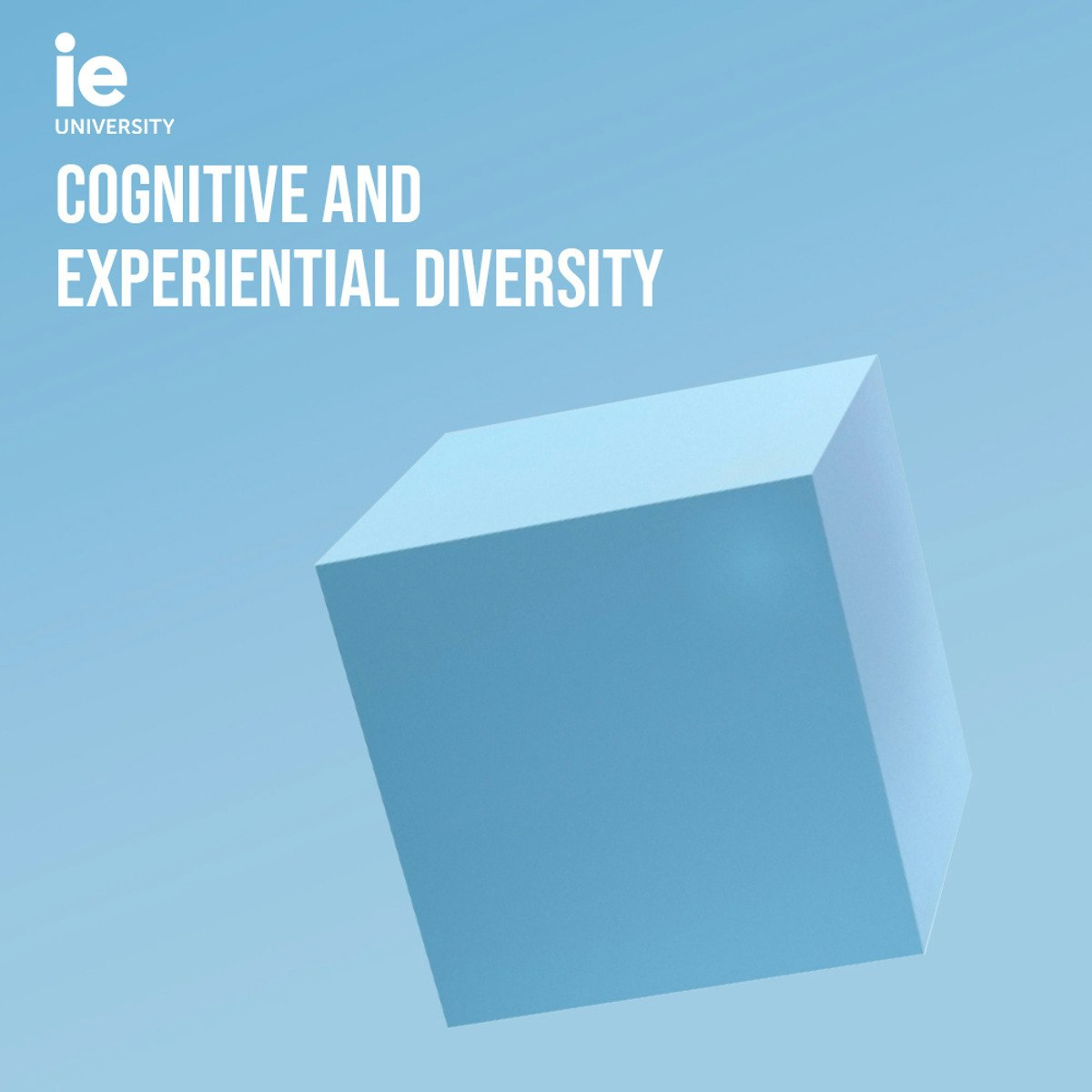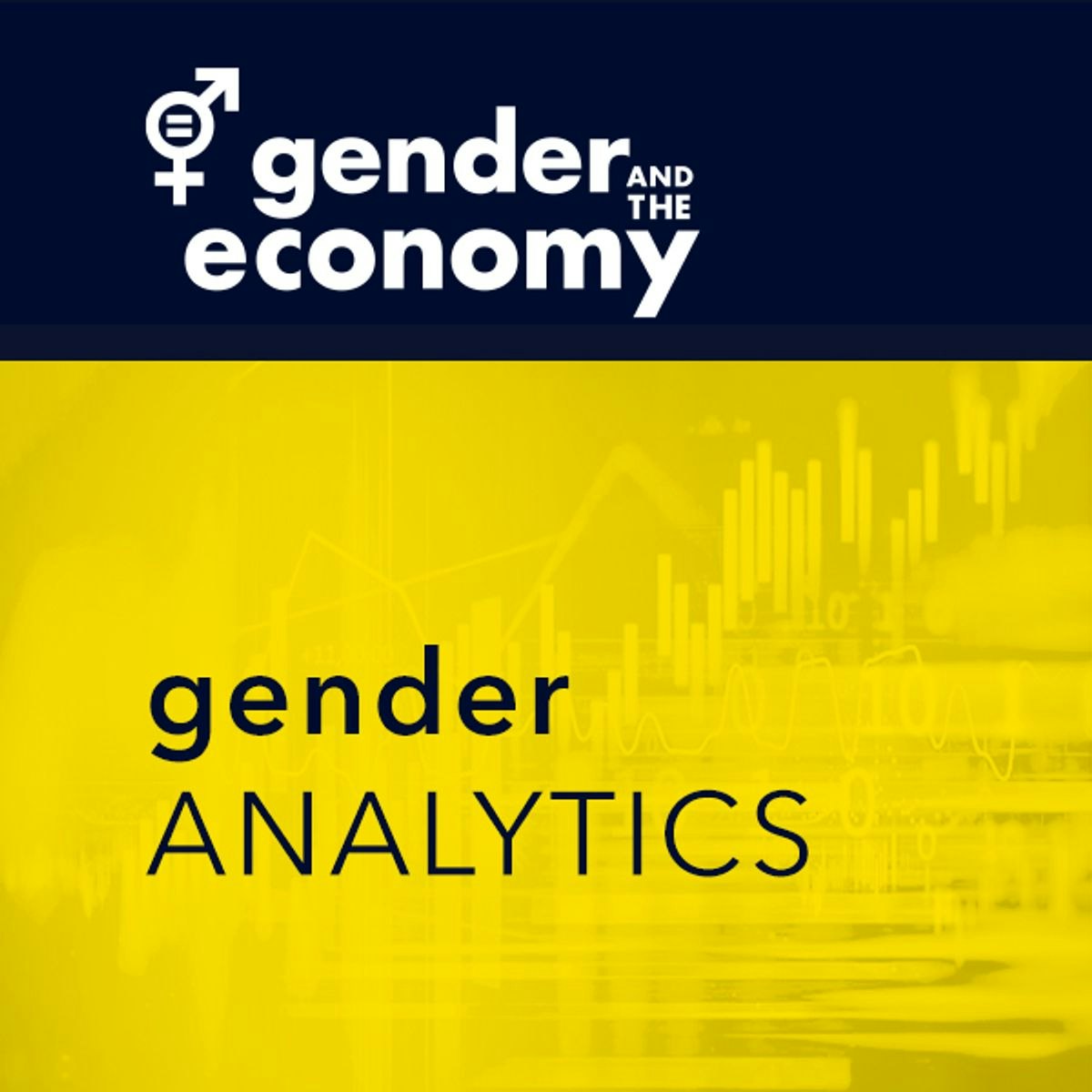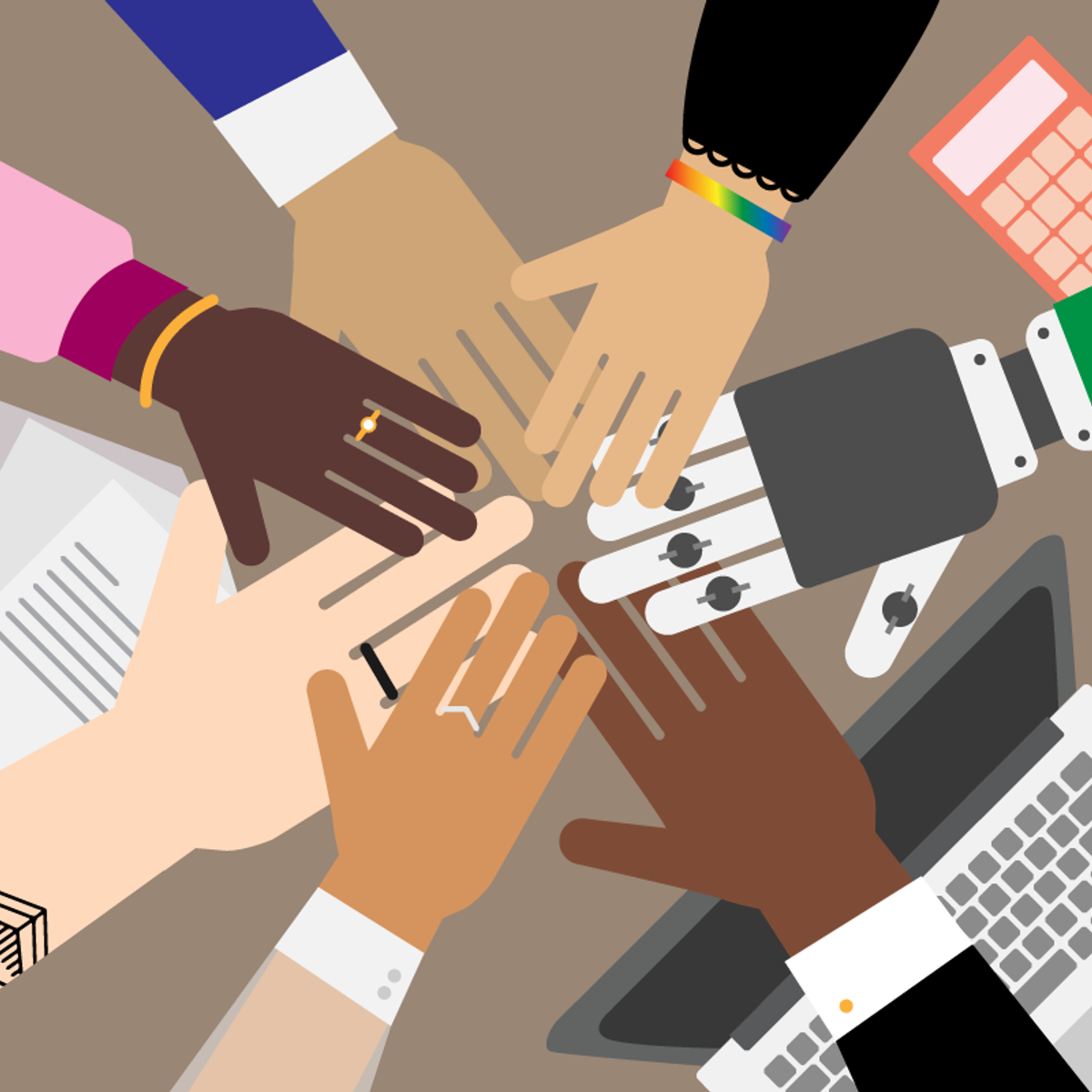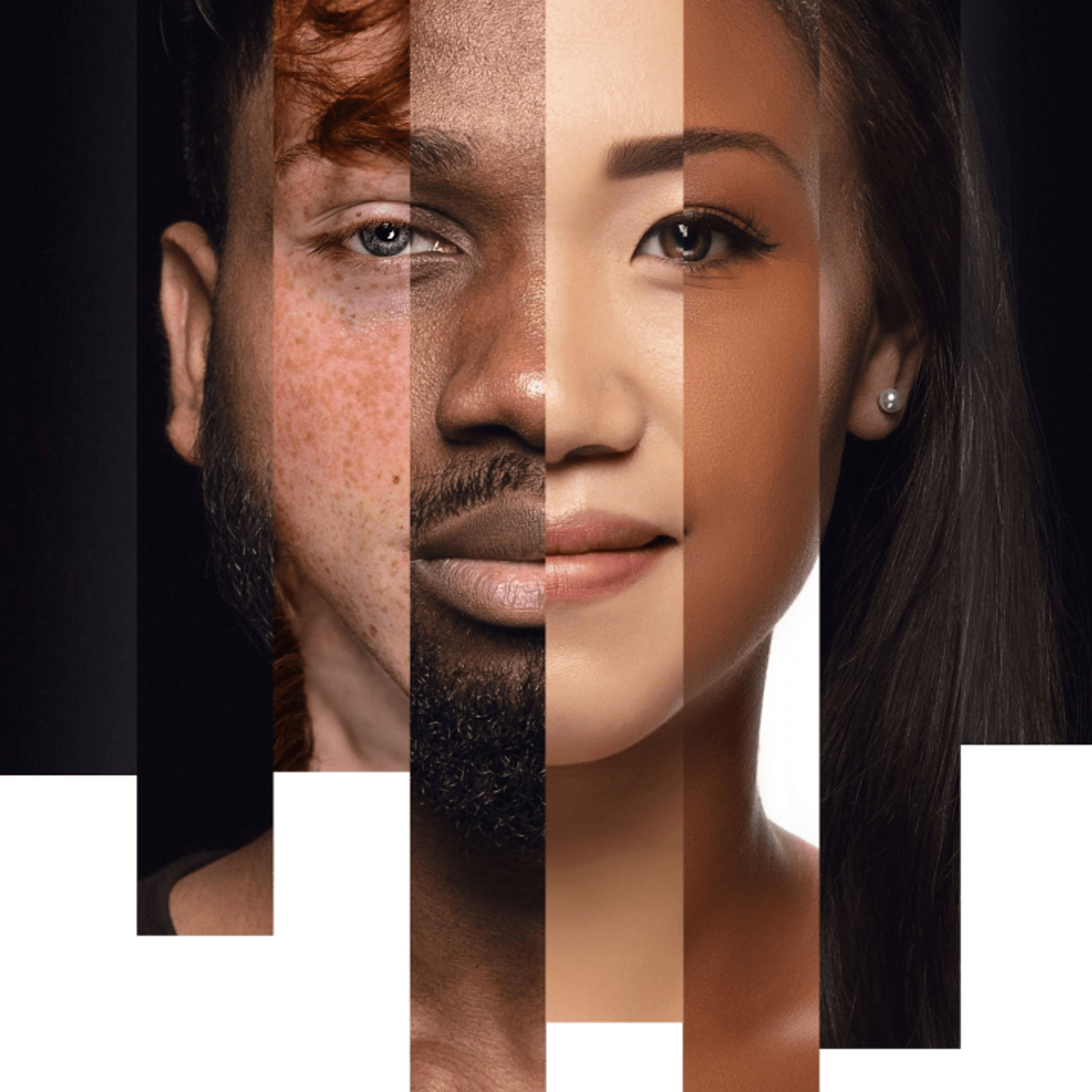Diversity and Inclusion Consultant
Becoming a Diversity and Inclusion Consultant
A Diversity and Inclusion (DEI) Consultant plays a crucial role in helping organizations foster environments where all employees feel valued, respected, and have equal opportunities to thrive. These professionals assess workplace dynamics, identify barriers to equity and inclusion, and develop tailored strategies to drive meaningful cultural change. They work with leadership and employees to build awareness, implement new policies, and measure progress towards a more diverse and equitable organization.
The work often involves analyzing data, facilitating sensitive conversations, delivering training, and guiding organizations through complex cultural transformations. It's a field that demands strong analytical skills, empathy, and a deep commitment to social justice principles. For those passionate about creating fairer workplaces and driving positive societal change, a career as a DEI Consultant can be incredibly rewarding.
This field offers the chance to make a tangible impact on organizational culture and employee well-being. Engaging with diverse groups, tackling systemic issues, and seeing the positive effects of inclusion initiatives can be deeply fulfilling aspects of the role.
Introduction to Diversity and Inclusion Consultant
What Does a Diversity and Inclusion Consultant Do?
A Diversity and Inclusion (DEI) Consultant acts as a strategic partner for organizations aiming to build more equitable and inclusive workplaces. Their primary responsibility is to evaluate an organization's current state regarding diversity, equity, and inclusion. This involves analyzing workforce demographics, reviewing policies and procedures for potential biases, and understanding the lived experiences of employees from various backgrounds.
Consultants identify specific challenges and opportunities related to DEI within the organization. This might involve uncovering unconscious biases in hiring or promotion processes, assessing the inclusivity of communication practices, or examining the accessibility of opportunities for underrepresented groups. They use a combination of quantitative data analysis and qualitative methods like interviews and focus groups.
Based on their assessment, DEI consultants develop customized strategies and action plans. These plans often include recommendations for policy changes, leadership development programs, employee training modules, and initiatives like Employee Resource Groups (ERGs). Their goal is to foster a culture where diversity is leveraged as a strength and inclusion is embedded in everyday practices.
The role requires a nuanced understanding of complex social dynamics, including issues of race, gender, sexual orientation, disability, and more. Consultants must be adept at explaining these concepts in accessible ways and guiding organizations toward sustainable change.
Why Organizations Need DEI Consultants
Organizations increasingly recognize that diversity, equity, and inclusion are not just ethical imperatives but also critical drivers of business success. DEI consultants help companies navigate the complexities of building truly inclusive environments, moving beyond mere compliance to genuine cultural transformation.
A core objective is to help organizations attract and retain top talent. Research shows that job seekers, particularly from younger generations, prioritize workplaces with strong DEI commitments. According to a Glassdoor survey cited in 2022, 76% of job seekers consider a diverse workforce important when evaluating companies. Consultants help create the inclusive culture necessary to appeal to this talent pool.
DEI consultants also assist organizations in enhancing innovation and performance. Diverse teams bring a wider range of perspectives and experiences, leading to more creative problem-solving and better decision-making. Consultants guide companies in harnessing this potential by fostering psychological safety and ensuring all voices can be heard.
Furthermore, these consultants help organizations mitigate risks associated with discrimination and non-compliance. They ensure policies are fair and equitable, reducing legal vulnerabilities and protecting the company's reputation. Ultimately, their work aims to create a workplace where everyone feels they belong and can contribute fully.
Where DEI Consultants Work
Diversity and Inclusion Consultants work across a wide spectrum of industries and sectors, reflecting the universal need for more equitable workplaces. Many operate as external consultants, either independently or as part of specialized consulting firms or larger management consulting practices like BCG or PwC.
Large corporations, particularly in technology, finance, healthcare, and consumer goods, frequently employ DEI consultants or have dedicated internal DEI teams. These organizations often face complex challenges related to global workforces, diverse customer bases, and public scrutiny regarding their social impact.
Educational institutions, from K-12 schools to universities, also utilize DEI consultants to address issues related to student diversity, inclusive curriculum development, and faculty/staff equity. Non-profit organizations and government agencies increasingly seek DEI expertise to ensure their services are equitable and their internal cultures reflect the communities they serve.
The demand is not limited by organizational size; small and medium-sized businesses are also recognizing the importance of DEI, creating opportunities for consultants who can offer scalable solutions. Essentially, any organization committed to improving its culture and performance can benefit from the expertise of a DEI consultant.
Here are introductory courses covering fundamental DEI concepts applicable across sectors.
Historical Evolution of Diversity and Inclusion Consultant Roles
Roots in Social Justice Movements
The origins of Diversity and Inclusion consulting are deeply intertwined with broader social justice movements, particularly the Civil Rights Movement in the United States during the mid-20th century. Early efforts focused primarily on legal compliance and addressing overt discrimination, driven by landmark legislation aimed at ensuring equal employment opportunities.
Initial roles often resided within Human Resources or legal departments, concentrating on affirmative action plans and preventing discriminatory practices based on race and gender. The focus was largely reactive, aimed at meeting legal requirements rather than proactively fostering an inclusive culture.
Over time, feminist movements and advocacy for LGBTQ+ rights and disability rights broadened the scope of workplace equity concerns. This expanded the understanding of "diversity" beyond race and gender, bringing attention to other dimensions of identity and the systemic barriers faced by various marginalized groups.
These historical roots continue to shape the field, grounding DEI work in principles of fairness, justice, and equal opportunity. Understanding this history is crucial for consultants navigating the ongoing evolution of workplace equity.
These books provide essential context on the historical struggles for equity that inform modern DEI work.
From Compliance to Strategy
In recent decades, the field of Diversity and Inclusion has undergone a significant transformation, shifting from a primarily compliance-driven function to a strategic business imperative. Early efforts focused on avoiding legal trouble and meeting quotas, often seen as a cost center or a necessary burden.
As research increasingly demonstrated the tangible benefits of diversity—enhanced innovation, better problem-solving, improved financial performance, and stronger brand reputation—organizations began to view DEI more strategically. Consultants played a key role in helping companies understand this business case.
This shift involved moving beyond simply counting diverse employees ("diversity") to actively fostering environments where everyone feels valued and can contribute fully ("inclusion"). The focus expanded to address systemic biases, organizational culture, leadership behaviors, and equitable processes.
Modern DEI consultants emphasize integrating DEI goals into the core business strategy, rather than treating them as separate initiatives. They help align DEI efforts with talent management, product development, customer engagement, and overall organizational mission, ensuring that inclusion becomes part of the company's DNA.
Globalization's Influence
The increasing globalization of business has profoundly impacted the role and scope of Diversity and Inclusion consulting. As companies expanded their operations across borders, they encountered a much wider array of cultural norms, legal frameworks, and social contexts related to diversity.
This required DEI consultants to develop a more nuanced, global perspective. Strategies effective in one country or region might be irrelevant or even counterproductive elsewhere. Consultants needed to understand local sensitivities, legal requirements, and cultural definitions of diversity and inclusion.
Globalization also highlighted the importance of cross-cultural communication and collaboration within multinational teams. DEI consultants began developing programs focused on cultural competency, managing global virtual teams, and adapting leadership styles for diverse international contexts.
The challenge became balancing global DEI principles with local realities, creating frameworks that were consistent yet adaptable. This expansion required consultants to broaden their expertise and cultural fluency, making the field more complex but also more vital for international organizations.
This course explores leading diverse teams, a key skill in globalized environments.
Key Concepts and Frameworks
Understanding and Addressing Bias
A fundamental aspect of DEI consulting involves understanding and addressing bias, particularly unconscious or implicit bias. These are the mental shortcuts and stereotypes that influence our perceptions and decisions without our conscious awareness. Consultants help individuals and organizations recognize how these biases can impact hiring, promotions, team dynamics, and overall workplace culture.
Strategies for mitigating unconscious bias often involve raising awareness through training and workshops. Consultants educate employees and leaders about common biases (like affinity bias, confirmation bias, or halo effect) and how they manifest in workplace interactions and decisions.
Beyond awareness, consultants help implement structural changes to reduce the influence of bias. This can include standardizing interview processes, using blind resume reviews, establishing clear criteria for evaluations, and creating systems for objective decision-making.
The goal is not to eliminate bias entirely—an unrealistic expectation—but to interrupt its impact and create fairer processes and outcomes. This requires ongoing effort and a commitment to examining assumptions and challenging stereotypes at both individual and organizational levels.
These courses delve into recognizing and managing bias in workplace settings.
The Importance of Intersectionality
Intersectionality is a crucial framework in DEI consulting. Coined by scholar Kimberlé Crenshaw, it describes how different aspects of a person's identity (like race, gender, class, sexual orientation, disability) intersect and overlap, creating unique experiences of privilege and discrimination.
DEI consultants use an intersectional lens to understand that individuals' experiences cannot be understood by looking at single identity categories in isolation. For example, the challenges faced by a Black woman may differ significantly from those faced by a white woman or a Black man due to the intersection of racism and sexism.
In practice, this means designing policies and initiatives that consider these overlapping identities. A consultant might analyze whether a company's parental leave policy adequately supports single parents, LGBTQ+ parents, or parents from lower socioeconomic backgrounds, not just parents in general.
Applying intersectionality helps avoid one-size-fits-all solutions and ensures that DEI efforts address the specific needs and barriers faced by individuals situated at the crossroads of multiple identity groups. It leads to more nuanced, equitable, and effective strategies.
These books explore feminist thought and intersectional experiences, providing a deeper understanding of the framework.
Measuring What Matters
Effective DEI consulting relies on data and metrics to assess progress, demonstrate impact, and guide strategy. Consultants help organizations move beyond anecdotal evidence to systematically measure diversity, equity, and inclusion.
Measuring diversity often involves tracking representation data across various demographics (race, gender, age, etc.) at different levels of the organization, in recruitment pipelines, and in promotion rates. This helps identify where disparities exist.
Measuring equity involves examining fairness in processes and outcomes, such as pay equity analyses, access to development opportunities, and fairness in performance reviews. Consultants help design systems to identify and address inequities.
Measuring inclusion is often more challenging, typically relying on employee surveys, focus groups, and qualitative feedback to gauge feelings of belonging, psychological safety, and respect. Consultants help develop metrics and survey instruments to capture these subjective yet critical aspects of the employee experience.
By establishing clear metrics and tracking progress over time, consultants enable organizations to hold themselves accountable, identify what initiatives are working, and make data-informed decisions to advance their DEI goals.
This course touches upon assessment within DEI initiatives.
Building Cultural Competence
Cultural competence is the ability to interact effectively and respectfully with people from diverse cultural backgrounds. DEI consultants play a vital role in helping individuals and organizations develop this capability, which is essential in today's diverse workplaces and globalized markets.
Consultants often utilize established models of cultural competence to frame their training and development programs. These models typically outline stages of awareness, knowledge, skills, and attitudes necessary for effective cross-cultural interaction.
Training might cover topics like understanding different communication styles, recognizing cultural variations in values and norms, managing cross-cultural conflict, and adapting behaviors to be more inclusive of diverse perspectives. The goal is to equip employees with the skills to navigate cultural differences constructively.
Developing cultural competence is an ongoing process, not a one-time event. Consultants help organizations embed cultural learning into onboarding, leadership development, and team-building activities, fostering a continuous improvement mindset towards intercultural understanding and collaboration.
Consider these resources for understanding cultural dynamics and their impact.
Formal Education Pathways
Undergraduate Foundations
While there isn't one specific undergraduate major required to become a DEI consultant, several fields provide a strong foundation. Degrees in Social Sciences, such as Sociology, Anthropology, or Psychology, offer valuable insights into group dynamics, social structures, inequality, and human behavior.
Human Resources Management programs often include coursework relevant to workplace dynamics, employment law, and organizational behavior, which are directly applicable to DEI work. Business degrees, particularly those with concentrations in organizational behavior or management, can also be beneficial, providing context for how DEI integrates with broader business strategy.
Studies in fields like Gender Studies, Ethnic Studies, or related interdisciplinary programs provide deep knowledge of specific dimensions of diversity and the historical and social contexts of inequality. Strong communication, critical thinking, and analytical skills, honed across various liberal arts majors, are also essential.
Regardless of the major, coursework focusing on statistics, research methods, and communication can significantly enhance a candidate's preparedness for the analytical and interpersonal demands of DEI consulting.
Advanced Studies in DEI
For those seeking deeper expertise, graduate programs offer specialized knowledge relevant to Diversity and Inclusion consulting. Master's or PhD programs in Organizational Psychology, Industrial-Organizational (I-O) Psychology, or Organizational Behavior delve into workplace dynamics, leadership, assessment, and change management.
Sociology programs with specializations in race, gender, or social inequality provide rigorous theoretical and research training. Some universities now offer specific Master's degrees or graduate certificates focused explicitly on Diversity, Equity, and Inclusion or related areas like Social Justice Education or Multicultural Counseling.
Law degrees (JD) with a focus on employment law, civil rights law, or human rights law can also be a pathway, particularly for consultants specializing in compliance and policy development. An MBA with a focus on human capital or organizational leadership can provide a strong business acumen lens to DEI strategy.
Advanced degrees often involve research components, honing analytical skills and potentially allowing students to contribute original scholarship to the field. This academic rigor can enhance credibility and provide a deeper understanding of the systemic issues underlying DEI challenges.
These courses address DEI within specific advanced contexts like higher education and leadership.
Certifications and Lifelong Learning
The field of Diversity and Inclusion is constantly evolving, making continuous learning and professional development crucial. Formal certifications can signal expertise and commitment to potential employers or clients, supplementing formal education and experience.
Several organizations offer DEI certifications, such as the Certified Diversity Professional (CDP) or Certified Diversity Executive (CDE). These programs typically involve coursework covering key DEI concepts, strategies, measurement, and ethics, followed by an examination. While not always mandatory, certifications can enhance credibility.
Beyond formal certifications, ongoing professional development is vital. This includes attending industry conferences, participating in webinars and workshops, reading current research and publications, and engaging with professional networks. Staying abreast of emerging trends, legal developments, and best practices is essential for effective consulting.
Lifelong learning in DEI also involves continuous self-reflection on one's own biases and privileges, and actively seeking out diverse perspectives. The nature of the work demands a commitment to personal growth alongside professional development.
Here are key books that contribute to ongoing learning in social justice and equity.
Research in the Field
Research plays a critical role in advancing the field of Diversity and Inclusion and informing evidence-based consulting practices. Academic research, often conducted within disciplines like organizational psychology, sociology, management, and social psychology, investigates the impacts of diversity, the effectiveness of interventions, and the mechanisms underlying bias and discrimination.
Consultants benefit from staying current with relevant research findings to ensure their strategies are grounded in empirical evidence. Research helps identify best practices, understand the nuances of different DEI challenges, and anticipate potential unintended consequences of interventions.
Opportunities exist for individuals with advanced degrees (Master's or PhD) to conduct their own research, contributing new knowledge to the field. This might involve studying the impact of specific training programs, developing new measures of inclusion, or exploring DEI issues in particular industries or cultural contexts.
Collaboration between researchers and practitioners is also valuable, allowing academic insights to inform real-world applications and practical challenges to guide research questions. This synergy helps ensure that DEI consulting remains effective, relevant, and responsive to evolving workplace dynamics.
Alternative Learning Pathways for Diversity and Inclusion Consultant Careers
Hands-on Workshops and Seminars
For those transitioning into DEI or seeking practical skills without committing to a full degree program, workshops and professional development seminars offer valuable learning opportunities. These shorter-format sessions often focus on specific skills or topics relevant to DEI consulting.
Workshops might cover areas like facilitating difficult conversations about race, designing inclusive meetings, conducting cultural audits, developing unconscious bias training, or implementing specific DEI assessment tools. They provide practical, actionable techniques that can be immediately applied.
Seminars and conferences bring together practitioners, researchers, and thought leaders, offering exposure to current trends, best practices, and diverse perspectives. These events provide networking opportunities and insights into the real-world challenges and successes of DEI initiatives across different organizations.
Many professional organizations, universities, and specialized training providers offer these types of programs. Participating in such events demonstrates a commitment to continuous learning and can help build a strong professional network within the DEI community.
Self-Directed Learning Resources
The path to becoming a DEI consultant is not solely reliant on formal education. A wealth of knowledge is accessible through self-directed learning, particularly leveraging online resources. This approach allows individuals to learn at their own pace and tailor their studies to specific interests or career goals.
Online courses offer structured learning on a vast array of DEI topics, from foundational concepts to specialized areas like inclusive leadership or data analysis for equity. Platforms like OpenCourser aggregate thousands of courses, making it easy to find relevant options from various providers and institutions. Learners can use features like saved lists and summarized reviews to curate their learning journey.
Books written by leading scholars and practitioners in the field are essential resources. They provide in-depth exploration of theories, frameworks, case studies, and practical strategies. Building a personal library of key DEI texts is a crucial part of self-study.
Additionally, numerous toolkits, research reports, articles, and podcasts are available online from reputable organizations, think tanks, and consulting firms. Engaging with these resources regularly helps stay informed about the latest developments and perspectives in the rapidly evolving DEI landscape.
These online courses provide accessible introductions and skill-building opportunities for self-directed learners.
Foundational books can guide self-study and provide deep insights into core DEI issues.
Gaining Credibility Through Certifications
For individuals pursuing alternative learning pathways, professional certifications can be particularly valuable for signaling expertise and credibility in the absence of a specialized degree. While experience often speaks loudest, certifications demonstrate a formal understanding of core DEI principles and practices.
As mentioned earlier, credentials like the Certified Diversity Professional (CDP) or similar designations from reputable organizations provide structured validation of knowledge. Preparing for these certifications often involves a curriculum that covers key areas of DEI competence, reinforcing self-study efforts.
Certifications can be especially helpful for career changers looking to formally demonstrate their pivot into the DEI field. They can strengthen a resume and provide talking points during interviews about one's commitment and foundational knowledge.
It's important to research different certification options to understand their focus, requirements, and reputation within the industry. Choosing a well-regarded certification can add significant weight to a professional profile built through non-traditional means.
Building Experience Through Practice
Theoretical knowledge is essential, but practical experience is paramount in DEI consulting. For those taking alternative routes, actively seeking opportunities to apply DEI principles is crucial for building a compelling portfolio and developing real-world skills.
Volunteering with non-profit organizations on their DEI initiatives can provide valuable hands-on experience. This might involve serving on a DEI committee, helping develop inclusive programming, or assisting with community outreach efforts.
Pro bono consulting projects for smaller organizations or startups can be an excellent way to gain practical consulting experience. This allows individuals to apply their knowledge in assessing needs, developing strategies, and facilitating discussions in a lower-stakes environment.
Within one's current role, even if not formally DEI-focused, individuals can often find opportunities to champion inclusion. This could involve leading Employee Resource Groups (ERGs), advocating for more equitable practices within their team, or contributing to diversity recruitment efforts.
Documenting these experiences, highlighting specific contributions and outcomes, helps build a portfolio that demonstrates practical competence and commitment to DEI work, complementing knowledge gained through self-study or workshops.
Career Progression and Hierarchy
Starting Your DEI Journey
Entry into the DEI field often begins in roles that provide foundational experience in related areas. Positions like HR Coordinator, Recruiter, Training Assistant, or Program Coordinator can offer exposure to workplace dynamics, talent management processes, and organizational policies.
Specific entry-level DEI roles might include titles like DEI Coordinator or DEI Assistant. These positions typically support senior DEI staff in implementing programs, collecting data, scheduling training, and managing communications. They provide an excellent opportunity to learn the practical aspects of DEI work within an organization.
Internships with DEI departments or consulting firms offer invaluable early experience for students or recent graduates. These roles allow individuals to observe experienced practitioners, contribute to ongoing projects, and begin building a professional network.
Passion for DEI, strong communication skills, and a willingness to learn are key attributes for securing these initial roles. Demonstrating initiative, perhaps through volunteer work or involvement in campus diversity groups, can also strengthen an application.
Specializing and Growing
As DEI professionals gain experience, opportunities for specialization emerge. Mid-career roles often involve managing specific DEI programs, leading Employee Resource Groups (ERGs), or focusing on particular areas like diverse talent acquisition, supplier diversity, or inclusive leadership development.
Common mid-level titles include DEI Specialist, DEI Program Manager, or DEI Business Partner. These roles typically involve greater responsibility for designing, implementing, and measuring the impact of DEI initiatives within a specific department or across the organization.
Consultants at this stage might develop expertise in particular industries or focus on specific dimensions of diversity, such as gender equity, racial justice, LGBTQ+ inclusion, or disability advocacy. Building a track record of successful projects and measurable outcomes is key to advancement.
Continuing education, obtaining certifications, presenting at conferences, and publishing articles can further enhance expertise and visibility. Networking within the professional DEI community remains crucial for identifying opportunities and staying current with best practices.
This course focuses on supplier diversity, an area of specialization.
Reaching Leadership Positions
Senior leadership roles in DEI involve shaping the organization's overall strategy, influencing executive decisions, and driving systemic change. Titles at this level include Director of DEI, Vice President of DEI, or Chief Diversity Officer (CDO).
These executive positions require deep expertise, strong leadership skills, strategic thinking, and the ability to navigate complex organizational politics. CDOs and VPs of DEI often report directly to the CEO or other C-suite executives, integrating DEI into the highest levels of business strategy.
Responsibilities typically include setting long-term DEI goals, securing resources, building and leading a DEI team, advising senior leadership, representing the organization externally on DEI matters, and ensuring accountability across all departments.
Achieving these roles usually requires significant experience (often 10+ years) in DEI or related fields, a proven track record of impactful leadership, and often an advanced degree. Strong business acumen and the ability to demonstrate the ROI of DEI initiatives are critical at this level.
Branching Out
Experience as a DEI consultant or practitioner develops a versatile skill set that can open doors to adjacent fields. The ability to analyze complex systems, manage change, facilitate sensitive conversations, and influence stakeholders is highly transferable.
Professionals might transition into broader Human Resources leadership roles, leveraging their DEI expertise to inform talent strategy, employee relations, and organizational development. Others may move into roles focused specifically on organizational development or change management, applying their skills to wider transformation initiatives.
Some DEI experts move into executive coaching, leadership development, or corporate social responsibility (CSR) roles. The skills honed in DEI are also valuable in public relations, communications, and policy advocacy positions.
Furthermore, experienced DEI consultants may establish their own independent consulting practices, teach at universities, or conduct research. The deep understanding of human behavior, organizational dynamics, and social systems gained in DEI work provides a strong foundation for various impactful career paths.
Implementation Challenges for Diversity and Inclusion Consultants
Overcoming Resistance to Change
One of the most significant challenges DEI consultants face is resistance to change within organizations. DEI initiatives often require shifts in deeply ingrained cultural norms, power structures, and individual behaviors, which can provoke pushback.
Resistance can manifest in various ways, from overt opposition to passive non-compliance or skepticism about the value of DEI efforts. Some individuals may feel threatened by changes to the status quo, fear losing privilege, or simply be uncomfortable discussing sensitive topics like race or bias.
Consultants must be skilled in navigating this resistance. This involves building trust, clearly communicating the rationale and benefits of DEI (both ethical and business-related), engaging stakeholders at all levels, and creating safe spaces for dialogue. Identifying and empowering internal champions can also be crucial.
Addressing resistance requires patience, persistence, and strategic communication. Consultants often need to tailor their approach based on the specific sources and nature of the resistance within each organization, employing empathy alongside firm resolve.
Understanding change management principles is helpful for navigating resistance.
Demonstrating Value
Securing adequate resources and sustained commitment for DEI initiatives often requires demonstrating their value, particularly in terms of return on investment (ROI). However, quantifying the impact of cultural change and inclusion efforts can be challenging.
Budget constraints are a common obstacle, with DEI programs sometimes viewed as "nice-to-haves" rather than essential business functions, especially during economic downturns. Consultants must effectively articulate the business case for DEI, linking initiatives to measurable outcomes like improved talent retention, increased innovation, better employee engagement, or enhanced brand reputation.
This involves establishing clear metrics from the outset, tracking progress rigorously, and presenting data in compelling ways to leadership. While some impacts are long-term and difficult to isolate, consultants need to find meaningful ways to show how DEI contributes to organizational goals.
Building strong relationships with finance and strategy departments can help align DEI metrics with broader business KPIs. Effectively demonstrating value is key to ensuring DEI initiatives receive the necessary funding and strategic priority to succeed.
Beyond Compliance: Fostering True Inclusion
A persistent challenge is moving organizations beyond a surface-level, compliance-focused approach to DEI towards fostering a genuinely inclusive culture. Simply meeting legal requirements or diversity quotas does not guarantee that employees from all backgrounds feel respected, valued, and empowered.
Consultants must help organizations understand the difference between diversity (representation) and inclusion (belonging and participation). True inclusion requires systemic changes that address subtle biases, microaggressions, and exclusionary practices embedded in daily interactions and processes.
This involves working on leadership behaviors, team dynamics, communication norms, and creating psychological safety. It requires shifting mindsets and fostering empathy throughout the organization, which is often more difficult than implementing policy changes.
Measuring inclusion authentically, through employee sentiment and qualitative feedback, is crucial but complex. Consultants guide organizations in developing strategies that target the deeper cultural elements necessary for sustained inclusion, ensuring efforts are not merely performative.
These courses focus on building inclusive environments and leadership.
Adapting to Different Contexts
DEI challenges and effective solutions can vary significantly depending on the global, regional, or local context. Consultants working with multinational corporations or diverse domestic populations face the challenge of adapting strategies appropriately.
Cultural norms around hierarchy, communication styles, and acceptable topics of discussion differ across regions. Legal frameworks regarding discrimination and employee rights also vary widely. A DEI initiative successful in North America might need significant modification to be effective in Asia or Europe.
Within a single country, regional differences, urban versus rural settings, and industry-specific cultures can also necessitate tailored approaches. Consultants need cultural sensitivity and adaptability to navigate these nuances effectively.
This requires thorough research into local contexts, collaboration with local stakeholders, and flexibility in program design. Balancing the need for consistent global DEI principles with the necessity of local relevance is a key strategic challenge for consultants operating in diverse environments.
Ethical Considerations in Diversity and Inclusion Consulting
Avoiding Superficial Efforts
A significant ethical consideration for DEI consultants is ensuring their work leads to substantive change rather than mere "tokenism" or performative gestures. Organizations may sometimes seek DEI initiatives primarily for public relations benefits without committing to deep, systemic transformation.
Consultants have an ethical responsibility to push for meaningful impact. This involves challenging superficial approaches, advocating for strategies that address root causes of inequity, and ensuring accountability mechanisms are in place. It requires courage to potentially disagree with clients or recommend more challenging paths.
Maintaining integrity means prioritizing genuine inclusion over quick fixes or initiatives that look good on paper but lack real substance. This might involve declining engagements where the client seems unwilling to commit to meaningful change or setting clear expectations about the depth of work required.
Ethical consultants focus on long-term, sustainable change that improves the lived experiences of employees, rather than simply improving diversity metrics for appearance's sake. This commitment to substance over symbolism is crucial for the credibility of both the consultant and the field.
Handling Sensitive Information
DEI consulting often involves collecting and analyzing sensitive personal data about employees, including demographics, experiences with discrimination or bias, and opinions about the workplace culture. Handling this information ethically and responsibly is paramount.
Maintaining confidentiality is crucial to building trust and encouraging honest participation in surveys, interviews, and focus groups. Consultants must establish clear protocols for data collection, storage, and reporting that protect individual anonymity.
Sharing aggregated findings requires careful consideration to avoid inadvertently identifying individuals or specific groups in ways that could lead to repercussions. Consultants must be transparent with participants about how their data will be used and protected.
Navigating privacy laws and regulations, which can vary significantly across jurisdictions, is another key ethical responsibility. Ensuring compliance while gathering the necessary data to inform effective strategies requires careful planning and expertise.
Navigating Complex Social Issues
DEI work inherently involves navigating complex and often politically charged social issues related to race, gender, religion, sexual orientation, and other dimensions of identity. Consultants must approach these sensitive topics with skill, impartiality, and respect for diverse viewpoints.
Facilitating discussions about potentially divisive issues requires creating psychologically safe environments where participants feel comfortable sharing their perspectives without fear of judgment or reprisal. Consultants must be adept at managing conflict and fostering constructive dialogue.
Maintaining objectivity while advocating for equity can be challenging. Consultants need to ground their recommendations in data and established principles of fairness, while acknowledging the emotional and political dimensions of the issues at hand.
Ethical practice involves being mindful of one's own biases and perspectives, avoiding imposing personal ideologies, and focusing on creating inclusive environments that respect legal rights and promote organizational effectiveness within the bounds of ethical principles.
These books delve into complex issues of gender, race, and social structures, relevant to navigating these sensitivities.
Ensuring Accountability
A key ethical dimension of DEI consulting is establishing and promoting accountability for achieving DEI goals. Recommendations and strategies are ineffective if there are no mechanisms to ensure they are implemented and sustained.
Consultants should work with clients to build accountability frameworks that embed DEI responsibilities into leadership roles, performance management systems, and operational processes. This might involve setting clear, measurable targets and regularly reporting on progress.
Holding both the organization and themselves accountable is important. Consultants should be transparent about the potential impact and limitations of their interventions and follow up to assess long-term outcomes. They should also be prepared to address instances where commitments are not being met.
Ethical practice involves ensuring that DEI is not just a project or initiative but becomes an integrated and ongoing part of how the organization operates, with clear ownership and consequences for inaction. This helps ensure that consulting engagements lead to lasting positive change.
Future of Diversity and Inclusion Consultant Roles
Technology's Role in DEI
Technology, particularly Artificial Intelligence (AI), is poised to significantly impact the future of DEI consulting. AI tools offer potential benefits, such as analyzing large datasets to identify bias patterns, screening job descriptions for exclusionary language, and potentially delivering personalized DEI training.
However, AI also presents risks. Algorithms trained on biased data can perpetuate or even amplify existing inequities. As highlighted by sources like Forbes and Mercer, careful design and implementation are crucial to ensure AI supports, rather than hinders, DEI goals. Consultants will need to understand both the potential and pitfalls of these technologies.
The future role of DEI consultants may involve advising organizations on the ethical and effective use of AI in HR and DEI processes. This includes evaluating vendors, auditing algorithms for bias, and ensuring technology complements human judgment rather than replacing the crucial human element of DEI work.
Consultants will need to stay technologically literate and guide organizations in leveraging tools responsibly to enhance fairness and efficiency, while mitigating risks related to privacy and algorithmic bias. AI is seen as a tool to augment, not replace, the expertise of DEI professionals.
Market Demand and Industry Trends
The market for DEI consulting services has seen significant growth, driven by increased societal awareness and recognition of the business benefits of inclusive workplaces. Reports suggest continued growth, with the global D&I market projected to reach substantial figures; for instance, one report cited by Business Wire estimated it reaching $24.4 billion by 2030.
However, the field is also subject to shifts. Some recent analysis, like that mentioned by Aura Intelligence, indicates a potential decline in postings for specific DEI-titled roles, suggesting a possible trend towards integrating DEI responsibilities more broadly across functions rather than siloing them in dedicated departments.
Despite fluctuations in specific job titles or budget allocations, the underlying need for expertise in managing diverse workforces and fostering inclusive cultures remains strong. Trends point towards embedding DEI into core business strategies, leadership competencies, and ESG (Environmental, Social, Governance) frameworks.
Consultants who can adapt to these evolving trends, demonstrate strategic value, and help organizations integrate inclusion authentically are likely to remain in demand. The focus may shift from standalone initiatives to more holistic, integrated approaches.
Evolving Areas of Focus
The scope of DEI consulting is continually expanding to address emerging areas of focus and new dimensions of diversity. Consultants need to stay informed about these evolving priorities to remain relevant and effective.
Neurodiversity, encompassing conditions like autism, ADHD, and dyslexia, is gaining recognition as an important aspect of workplace diversity. Consultants are increasingly called upon to help organizations create environments that support neurodivergent employees and leverage their unique talents.
Generational equity is another growing area, as workplaces now often include five distinct generations with different expectations, communication styles, and work preferences. Consultants help bridge generational divides and foster intergenerational collaboration.
Other evolving areas include mental health and well-being in the context of inclusion, climate justice and its intersection with social equity, and the complexities of managing diversity in remote and hybrid work environments. Consultants must continuously update their knowledge to address these dynamic challenges.
This course touches on adapting to remote team dynamics.
Harmonizing Approaches
As DEI practices mature globally, there is a growing need for greater harmonization and standardization of approaches, frameworks, and metrics. While local adaptation remains crucial, common principles and benchmarks can help multinational organizations implement consistent strategies.
Efforts are underway by international bodies and industry groups to develop shared standards and reporting frameworks for DEI. Consultants play a role in helping organizations understand and adopt these standards where appropriate.
This trend towards harmonization aims to increase transparency, allow for better comparability across organizations and regions, and elevate the overall effectiveness of DEI efforts globally. It requires consultants to be knowledgeable about both global best practices and local nuances.
The future likely involves a blend of globally recognized principles adapted thoughtfully to specific cultural and legal contexts. Consultants who can navigate this balance will be particularly valuable in helping organizations develop coherent and impactful global DEI strategies.
Frequently Asked Questions
Compensation Expectations
Salary ranges for Diversity and Inclusion Consultants vary significantly based on experience, education, location, industry, and whether the role is internal or external. Entry-level positions like DEI Coordinator might start lower, while senior roles like Chief Diversity Officer can command executive-level compensation.
Data from sources like Salary.com (as of April 2025) suggests an average annual pay around $83,447 in the US, with a typical range between $73,096 and $93,682. ZipRecruiter data (April 2025) indicates an average hourly rate around $49.72, with a wide range reflecting diverse opportunities based on skill and location.
External consultants' earnings can also vary greatly depending on their fee structure, client base, and reputation. Top-tier management consulting firms often offer salaries competitive with other consulting roles, which can be substantial, especially at senior levels.
Factors like possessing advanced degrees or certifications, having specialized expertise (e.g., in a specific industry or DEI dimension), and demonstrating a strong track record of impact can positively influence earning potential.
Making the Switch
Transitioning into DEI consulting from adjacent fields like Human Resources, Management, Law, or Education is common. Leveraging existing skills and experience is key to making a successful pivot.
Highlight transferable skills such as project management, communication, training facilitation, data analysis, policy development, and stakeholder management. Gaining specific DEI knowledge through courses, certifications, or self-study is crucial to bridge any gaps.
Seek opportunities within your current organization to get involved in DEI initiatives, join Employee Resource Groups, or volunteer for related projects. This provides practical experience and demonstrates commitment. Networking with DEI professionals is also vital for learning about the field and uncovering opportunities.
Consider pursuing a relevant certification or graduate program if you need to formalize your expertise. Crafting your resume and cover letter to explicitly connect your past experience with the requirements of DEI roles is essential. Be prepared to articulate your passion for DEI and how your unique background contributes value.
Key Credentials
While passion and experience are paramount, certain credentials can enhance credibility for DEI consultants. A bachelor's degree in a relevant field (HR, social sciences, business) is often a baseline expectation. Advanced degrees (Master's, PhD, JD) can be advantageous, especially for senior roles or specialized consulting.
Professional certifications, like the Certified Diversity Professional (CDP) or Certified Diversity Executive (CDE), are increasingly recognized and valued. They demonstrate a standardized level of knowledge and commitment to the field, particularly helpful for those without extensive formal DEI education.
Practical experience is perhaps the most crucial credential. A portfolio showcasing successful DEI projects, implemented strategies, training programs delivered, and measurable outcomes achieved speaks volumes to potential employers or clients.
Strong references from previous clients or employers who can attest to your skills in facilitation, strategy development, communication, and driving change are also highly valuable.
Geographic Variations in Demand
The demand for DEI consultants and practitioners can vary based on geographic location, influenced by factors like local legislation, industry concentration, cultural attitudes, and market maturity regarding DEI issues.
Historically, demand has been strong in North America and parts of Europe, driven by robust legal frameworks, corporate social responsibility trends, and significant public discourse on diversity issues. Major metropolitan areas with diverse populations and large corporate headquarters often show higher demand.
However, awareness and demand are growing globally. Regions in Asia-Pacific, Latin America, and Africa are increasingly recognizing the importance of DEI, creating emerging opportunities for consultants with relevant cultural and linguistic expertise.
Even within a country, demand can differ. For example, certain states or cities with progressive policies or specific industry clusters (like tech hubs) might have a higher concentration of DEI roles. Researching local market conditions is advisable for job seekers.
Gaining Early Experience
Internships provide invaluable early experience for aspiring DEI consultants. They offer exposure to real-world projects, mentorship from experienced professionals, and a chance to build foundational skills and professional connections.
Many large organizations, consulting firms, and non-profits offer DEI-focused internships. These opportunities allow interns to contribute to tasks like research, data analysis, content creation for training, event coordination, and supporting ERG activities.
Even if a dedicated DEI internship isn't available, internships in HR, communications, or community outreach can provide relevant experience. Actively seeking out DEI-related tasks within these roles can help build a relevant skill set.
Internship experience demonstrates initiative and commitment to the field, making candidates more competitive for entry-level positions upon graduation. It's an excellent way to test the waters and confirm if a career in DEI aligns with one's interests and abilities.
Economic Impacts on DEI
DEI budgets and initiatives can sometimes be vulnerable during economic downturns. When organizations face financial pressure, programs perceived as non-essential or lacking clear ROI may face cuts. This can impact hiring for DEI roles and funding for consulting engagements.
However, many organizations recognize that DEI is crucial for long-term resilience, innovation, and talent retention, even in challenging economic times. Companies with deeply embedded DEI strategies may be less likely to scale back significantly.
Consultants and practitioners who can effectively articulate the business case for DEI and demonstrate its link to core organizational goals may be better positioned to navigate economic fluctuations. Focusing on initiatives with measurable impact becomes even more critical.
Economic downturns can also shift priorities within DEI, perhaps towards ensuring equitable support for employees during restructuring or focusing on inclusive practices that boost morale and productivity with limited resources. Adaptability and strategic focus are key during such periods.
Embarking on a career as a Diversity and Inclusion Consultant offers a path to drive meaningful change within organizations and contribute to a more equitable society. While the journey requires dedication, continuous learning, and resilience in the face of challenges, the potential to foster inclusive environments where everyone can thrive is a powerful motivator. Whether through formal education, self-directed learning via resources like online courses, or gaining practical experience, building the necessary expertise is achievable. For those committed to championing diversity and inclusion, this career presents a unique opportunity to make a lasting impact.



